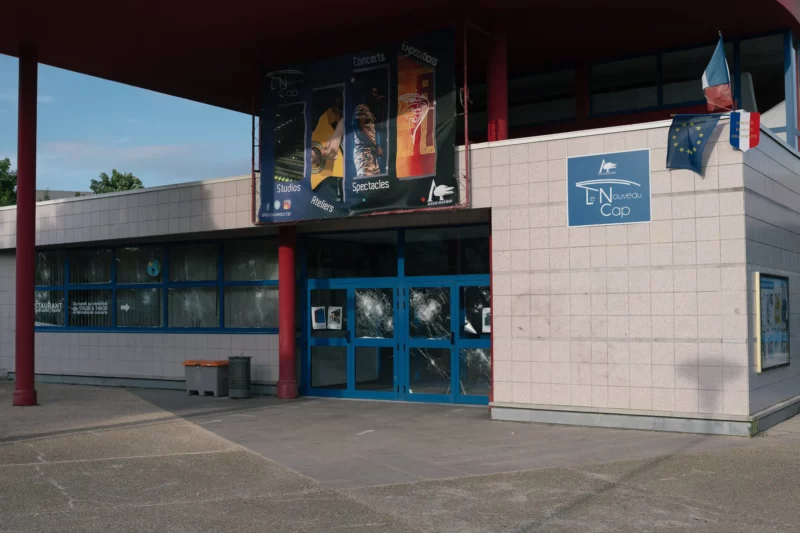International News: Riots in France Highlight a Vicious Cycle Between Police and Minorities
Share
Explore Our Galleries
Breaking News!
Today's news and culture by Black and other reporters in the Black and mainstream media.
Ways to Support ABHM?
By Catherine Porter & Constant Méheut, The New York Times
Calls to overhaul the police go back decades. But violent episodes of police enforcement continue. So do violent outpourings on the street.

Years before France was inflamed with anger at the police killing of a teenager during a traffic stop, there was the notorious Théo Luhaka case.
Mr. Luhaka, 22, a Black soccer player, was cutting through a known drug-dealing zone in his housing project in a Paris suburb in 2017 when the police swept in to conduct identity checks.
Mr. Luhaka was wrestled to the ground by three police officers, who hit him repeatedly and sprayed tear gas in his face. When it was over, he was bleeding from a four-inch tear in his rectum, caused by one of the officers’ expandable batons.
Mr. Luhaka’s housing project, and others around Paris, erupted in fury. He was held up as a symbol of what activists had been denouncing for years: discriminatory policing that violently targets minority youth, particularly in France’s poor areas.
And there was a sense that, this time, something would change. President François Hollande visited Mr. Luhaka in the hospital. Emmanuel Macron, then a presidential candidate in an election he would win months later, pledged to transform the country’s centralized police system into one more tailored to neighborhoods, so that police officers could recognize locals and “rebuild trust.”
That never happened. Instead, the relationship between the country’s minority populations and its heavy-handed police force worsened, many experts say, as evident in the tumultuous aftermath of the killing in late June of Nahel Merzouk, 17, a French citizen of Algerian and Moroccan descent.
After multiple violent, publicized encounters involving the police, a pattern emerged: Each episode led to an outburst of rage and demands for change, followed by a pushback from increasingly powerful police unions and dismissals from the government.
“It’s a repeating cycle, unfortunately,” said Lanna Hollo, a human rights lawyer in Paris who has worked on policing issues for 15 years. “What characterizes France is denial. There is a total denial that there is a structural, systemic problem in the police.”
Read more about the issue of police brutality in France in the original article.
Read this Breaking News article to learn more about how police brutality is affecting Black American families.
Find even more Breaking News here.









Comments Are Welcome
Note: We moderate submissions in order to create a space for meaningful dialogue, a space where museum visitors – adults and youth –– can exchange informed, thoughtful, and relevant comments that add value to our exhibits.
Racial slurs, personal attacks, obscenity, profanity, and SHOUTING do not meet the above standard. Such comments are posted in the exhibit Hateful Speech. Commercial promotions, impersonations, and incoherent comments likewise fail to meet our goals, so will not be posted. Submissions longer than 120 words will be shortened.
See our full Comments Policy here.